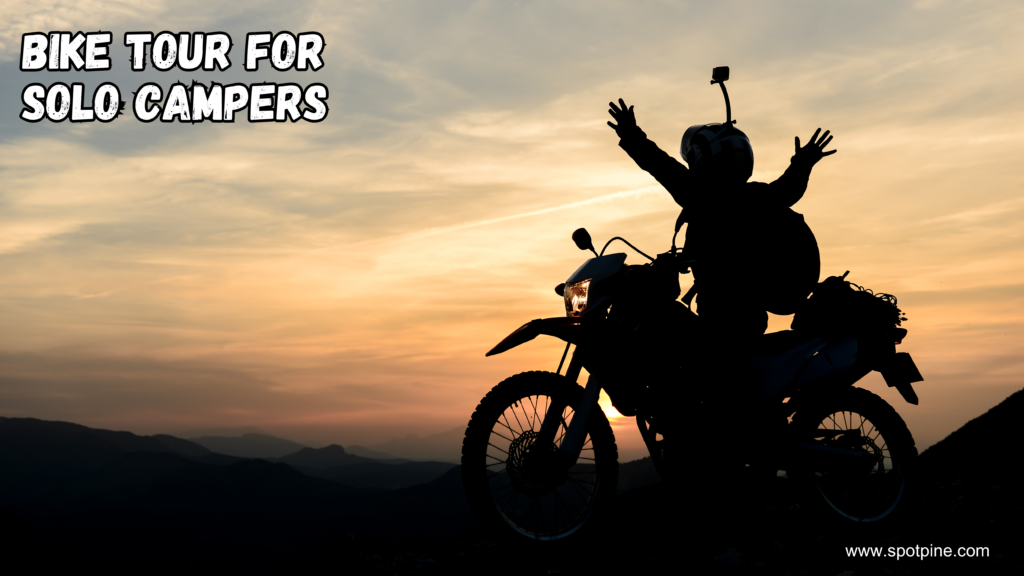Yes, it is safe for a woman to go camping alone with valid precautions. Camping solo can be an exciting and empowering experience, however, being a woman comes with various safety concerns that need attention.
It’s advised to research potential campsites, let someone know the itinerary, bring self-defense tools, and be aware of the surroundings. With adequate preparation and alertness, a memorable solo camping trip is possible for any woman.
Risks Of Solo Camping As A Woman
Camping alone can be an exhilarating and empowering experience for women, but it is crucial to acknowledge the risks involved. According to statistical analysis, women are more likely to be targeted by predators while camping solo than men.
Common threats such as physical assault, theft, and harassment are heightened, and it is imperative to be prepared and vigilant. Real-life experiences of female solo campers have reported instances of feeling unsafe due to creepy encounters.
| Precautions | Benefits |
| Communicate with someone about your camping location and expected return time | Connect with nature, boost self-confidence, and experience a sense of liberation and independence |
| Carry self-defense tools such as pepper spray, a whistle, and a flashlight | Reconnect with oneself, increase problem-solving and survival skills, and enjoy solitude and natural beauty |
| Research the campsite and surrounding area, including weather and terrain | Personal growth and a sense of achievement from overcoming fears and challenges |
Ultimately, the decision to embark on a solo camping trip as a woman is personal, and the precautions taken should be tailored to individual comfort levels. While there are risks, the benefits of a solo nature adventure far outweigh them with the right preparation and mindset.

Credit: www.bemytravelmuse.com
Basic Safety Measures For Solo Camping
Camping alone can be safe for women if they take basic safety measures into consideration. Choosing a safe location is critical, so research the area beforehand. Let someone know your itinerary and plan to check-in regularly. Carrying appropriate gear like a first-aid kit, map, compass, and a survival tool can also be helpful.
| Safe Locations | Unsafe Locations |
| Campgrounds with on-site security, Ranger stations, and well-lit areas | Remote or less-traveled areas, or locations with recent wildlife sightings |
| Parks with a reputation for safety and low crime rates | Areas near roads or highways with higher traffic levels |
Remember, Safety should always be a concern when camping alone as a woman. If in doubt, bring a friend along or join a group camping trip.
Advanced Safety Strategies For Solo Camping
When camping alone as a woman, it’s important to be extra cautious and prepared. Here are some tips:
- Self Defense for Women: Consider taking a self-defense course to learn basic moves to protect yourself.
- Surviving Wildlife Attacks: Research the area you plan to camp in and learn about any potentially dangerous animals. Keep food in sealed containers away from your campsite to avoid attracting wildlife.
- Minimizing the Risk of Rape or Sexual Assault: Choose a well-lit campsite, lock your vehicle and tent at all times, and trust your instincts. If someone or something makes you uncomfortable, move to a different location or leave the area entirely.

The Psychological Impact Of Solo Camping
Going camping alone as a woman can be a daunting prospect, but there are many benefits to the experience.
- Benefits of Being Alone in the Wild: Being alone in nature can help to improve mental health and well-being by reducing stress and increasing mindfulness.
- Overcoming Fears and Anxieties: Solo camping can help women to build confidence and overcome fears and anxieties.
- Building Self-Defense and Survival Skills: Learning basic self-defense and survival skills can be empowering and provide a sense of security when camping alone.
The psychological impact of solo camping varies from person to person. It can be challenging to confront fears and overcome anxieties, but the rewards can be fulfilling and life-changing. With the right preparation, camping alone as a woman can be a safe and rewarding experience.
FAQs:
Is It Safe For A Female To Camp Alone?
Yes, it is safe for a female to camp alone as long as she takes the necessary safety precautions, such as choosing a safe and well-lit campsite, informing friends or family of her location and plans, carrying self-defense tools, and being aware of her surroundings.
Should I Go Camping By Myself?
Camping alone can provide a unique and rewarding experience. However, it is important to consider safety precautions and be prepared for potential challenges. It is recommended to inform someone of your plans, have necessary equipment, and research the area beforehand.
Ultimately, the decision to camp alone should be based on personal comfort level and experience.
Where Can I Go Solo Camping?
There are plenty of options for solo camping, from national parks to secluded spots in the wilderness. Look for designated campgrounds or areas where dispersed camping is allowed. Be sure to research the rules and regulations before you go and always practice Leave No Trace principles.
Can 17 Year Olds Go Camping Alone?
No, 17 year olds cannot go camping alone. In most states, individuals below 18 years old are not allowed to camp overnight without adult supervision. This is because of safety concerns and the possibility of emergencies occurring. It is recommended that minors camp with responsible adults until they reach the age of majority.
Conclusion
After examining the potential risks and benefits, it ultimately comes down to personal preference and preparedness. With proper planning, precautions, and knowledge, camping alone as a woman can be a safe and rewarding experience. However, it is important to trust your instincts and prioritize safety above all else.
So, go ahead and plan that solo camping trip – just make sure to take the necessary precautions and stay alert while enjoying the great outdoors.




Pingback: Solo Female Camping Tips: Stay Safe and Confident on Your Adventures!